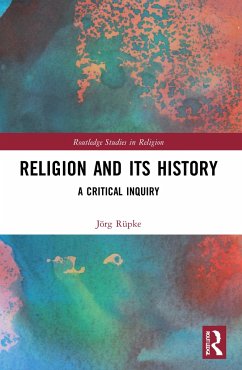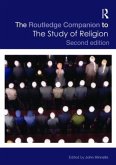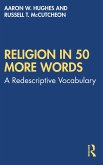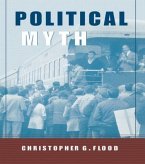Religion and its History offers a reflection of our operative concept of religion and religions, developing a set of approaches that bridge the widely assumed gulf between analysing present religion and doing history of religion. Religious Studies have adapted a wide range of methodologies from sociological tool kits to insights and concepts from disciplines of social and cultural studies. Their massive historical claims, which typically idealize and reify communities and traditions, and build normative claims thereupon, lack a critical engagement on the part of the researchers.
This book radically rethinks and critically engages with these biases. It does so by offering neither an abridged global history of religion nor a small handbook of methodology. Instead, this book presents concepts and methods that allow the analysis of contemporary and past religious practices, ideas, and institutions within a shared framework.
This book radically rethinks and critically engages with these biases. It does so by offering neither an abridged global history of religion nor a small handbook of methodology. Instead, this book presents concepts and methods that allow the analysis of contemporary and past religious practices, ideas, and institutions within a shared framework.
This is a remarkable and much needed theoretical intervention in the study of religion long biased by the presumed link between "individualism and modernity." Through his historical engagement with the ancient Mediterranean world, Rüpke focuses not on religious systems or groups but on "historical claim-makers" as they interact with others in particular social and material contexts. By shifting his focus to socially embedded individuals who advance claims regarding uncertain events, he creates a theoretically sophisticated and highly compelling framework for analyzing "religion in the making" in both ancient and modern contexts.
Ann Taves, University of California at Santa Barbara, USA.
The imposition of modern concepts of religion on societies and cultures outside of Europe or in the past has long been criticized by scholars of religion. But what is the next step? Backed by his expertise in the history of religions, in this marvelous book Jörg Rüpke invites us to re-think religion as the attribution of "agency beyond the unquestionably plausible". Developing conceptual tools for an integrated study of religion in past and present, he offers a ground-breaking intervention that most certainly will trigger new synergies to move beyond the current fragmentation.
Birgit Meyer, Utrecht University, The Netherlands
For too long, scholars have tended to narrate religion from the standpoint of enduring belief systems that individuals may take up more or less observantly. Religion and Its History presents us an exciting alternative that starts with religious agency, individual as well as collective. It invites historians and social scientists to learn how religion emerges in action, always shaped by the situational, social and material contexts in which actors communicate religiously. Jörg Rüpke gives us a pathbreaking conceptual synthesis, setting fresh agendas for research on religion across history and across the globe.
Paul Lichterman, University of Southern California, USA.
Ann Taves, University of California at Santa Barbara, USA.
The imposition of modern concepts of religion on societies and cultures outside of Europe or in the past has long been criticized by scholars of religion. But what is the next step? Backed by his expertise in the history of religions, in this marvelous book Jörg Rüpke invites us to re-think religion as the attribution of "agency beyond the unquestionably plausible". Developing conceptual tools for an integrated study of religion in past and present, he offers a ground-breaking intervention that most certainly will trigger new synergies to move beyond the current fragmentation.
Birgit Meyer, Utrecht University, The Netherlands
For too long, scholars have tended to narrate religion from the standpoint of enduring belief systems that individuals may take up more or less observantly. Religion and Its History presents us an exciting alternative that starts with religious agency, individual as well as collective. It invites historians and social scientists to learn how religion emerges in action, always shaped by the situational, social and material contexts in which actors communicate religiously. Jörg Rüpke gives us a pathbreaking conceptual synthesis, setting fresh agendas for research on religion across history and across the globe.
Paul Lichterman, University of Southern California, USA.









